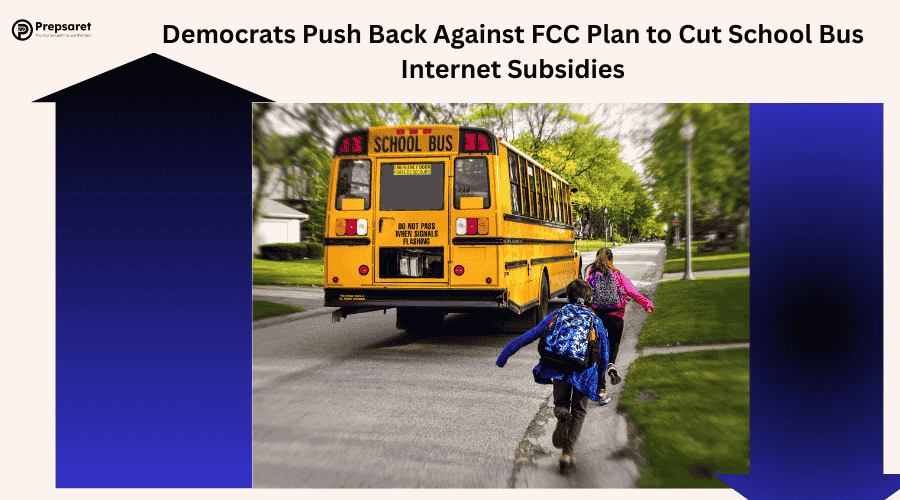Key Points:
- More than 50 Democratic lawmakers are urging the FCC to keep subsidies for Wi-Fi on school buses.
- The program, created during the pandemic, provided $48 million in 2024 for internet access.
- Lawmakers warn ending support would raise costs for schools and disrupt student connectivity.
Lawmakers Rally to Protect Student Internet Access
A coalition of Democratic lawmakers, led by Senator Ed Markey, is calling on the Federal Communications Commission (FCC) to reconsider a proposal that would end federal subsidies for Wi-Fi on school buses. In a letter sent Monday, the group argued the move would undermine student access to learning resources, particularly in rural and underserved communities.
The subsidies were initially introduced during the COVID-19 pandemic to bridge the digital divide for students forced into remote learning. According to the lawmakers, the program has since evolved into a vital support system.
In the 2024 budget, the FCC allocated $48 million to sustain internet connectivity on buses. They pointed out that more than 8,000 schools and libraries requested tens of millions of dollars to cover over 200,000 hotspot connections for students and educators.
The lawmakers emphasized that cutting support now would disrupt progress made during the pandemic and risk deepening educational inequities. “Removing federal support would force cutbacks in service and impose abrupt costs on schools and libraries across the country,” the letter stated.
Debate Over Costs and Connectivity
The FCC’s proposal to phase out subsidies comes amid broader discussions on federal spending and the future of pandemic-era relief programs. While officials argue that it is time to wind down temporary measures, critics stress that student internet access should not be treated as expendable.
Supporters of the subsidies note that many students still lack reliable home internet, making school bus Wi-Fi essential for completing homework, accessing online resources, and participating in modern learning environments. For rural areas especially, where broadband access remains limited, buses equipped with wireless hotspots have provided a crucial link.
Democratic lawmakers now warn that without continued support, schools will face sudden financial burdens or be forced to scale back services entirely. This, they argue, would leave students disconnected at a time when digital access is more important than ever.
The debate highlights a broader policy question: should internet access for students be considered a long-term public investment, or remain a temporary measure tied to emergency funding? As the FCC weighs its decision, the future of connectivity for hundreds of thousands of students hangs in the balance.

